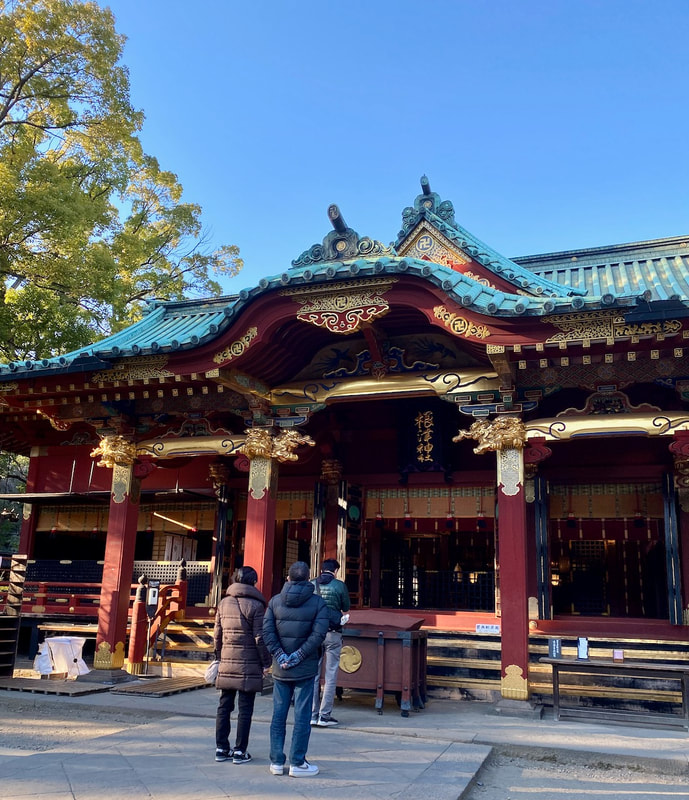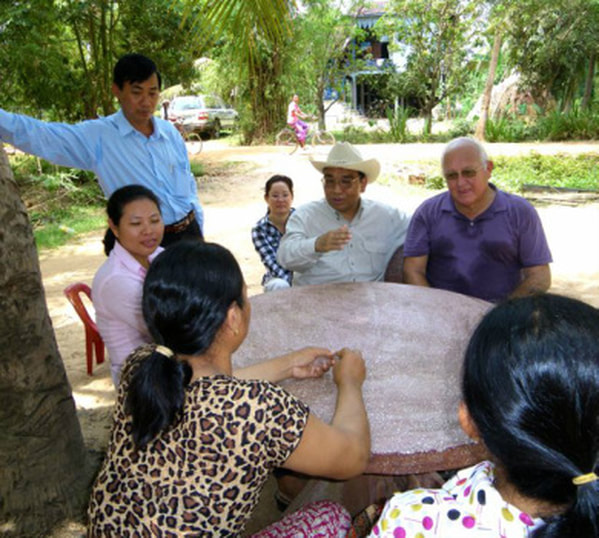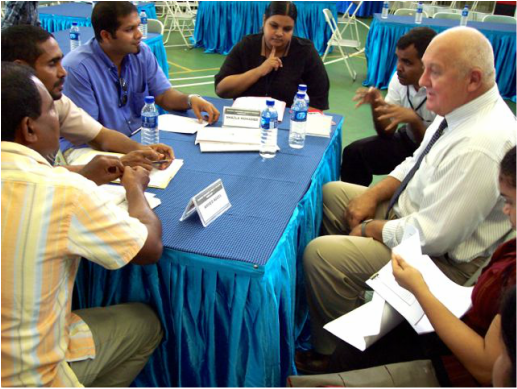International Consulting: 9 Crucial Steps to Success
Once, a marketing executive, Sarah, had to embark on a business trip to Tokyo, Japan. She had to seal a crucial deal with a Japanese company to expand their market presence in Asia.
Upon her arrival in Tokyo, Sarah immediately saw the stark contrast between the bustling metropolis and the serene traditional culture. During a meeting with her Japanese counterparts, she realized that building solid relationships was as crucial as discussing business matters.
Upon her arrival in Tokyo, Sarah immediately saw the stark contrast between the bustling metropolis and the serene traditional culture. During a meeting with her Japanese counterparts, she realized that building solid relationships was as crucial as discussing business matters.
Sarah immersed herself in the local culture to better connect with her hosts. She attended a traditional tea ceremony and learned about the art of patience and precision. She also practiced her chopstick skills at a local restaurant, showcasing her willingness to adapt.
As the days passed, Sarah's efforts to understand and appreciate the Japanese way of doing business paid off. Her hosts began to open up, and the negotiations progressed more smoothly. In the end, the deal was successfully sealed, not just due to the terms on paper but the mutual respect and understanding they had developed during her visit.
As the days passed, Sarah's efforts to understand and appreciate the Japanese way of doing business paid off. Her hosts began to open up, and the negotiations progressed more smoothly. In the end, the deal was successfully sealed, not just due to the terms on paper but the mutual respect and understanding they had developed during her visit.
Sarah's story highlights the importance of cultural sensitivity and building relationships, often the keys to success in international markets. To make your business travel as successful as Sarah" s, start with some of these tips:
1. Research and Understand Local Culture
It's not just about understanding their business culture; it's also about figuring out whether it's okay to use your left hand for handshakes or if it's for eating messy street food. You would want to start a meeting with something other than a samosa handshake!
When we worked in Pakistan, we often had to put our hands tightly held at our back because many of the local male consultants would find it unacceptable for women to shake their hands. We acknowledged the greeting but did not offer our hands as they would be embarrassed not to take them.
We also learned quickly that only males in the family sit at the table. The female guests are okay; we sit at the table with everyone else, not the wives and female kids. The host introduced them initially and was proud of them, but custom dictated that they didn't sit at the table. We accepted this as part of their culture.
Understanding a culture often does not help you, but not understanding basic elements of the culture can really hurt you.
2. Learn Basic Phrases or Be Proficient in A Few Languages
There was a time when being tall and white and English speaking were the key characteristics of an international consultant.
Today, English is still a core competency but everything else has changed and that's no bad thing. So, what is important?
Learning a few phrases in the local language can be a real lifesaver. Plus, you'll no longer confuse 'Hello' with 'You just insulted my grandmother' – trust me, they don't sound that similar." But there are other phrases in some local languages that, when mispronounced, would lead to embarrassing moments.
Better still is to become proficient in a few languages. Many local officials now speak more than one language so you can engage with them.
It's not just about understanding their business culture; it's also about figuring out whether it's okay to use your left hand for handshakes or if it's for eating messy street food. You would want to start a meeting with something other than a samosa handshake!
When we worked in Pakistan, we often had to put our hands tightly held at our back because many of the local male consultants would find it unacceptable for women to shake their hands. We acknowledged the greeting but did not offer our hands as they would be embarrassed not to take them.
We also learned quickly that only males in the family sit at the table. The female guests are okay; we sit at the table with everyone else, not the wives and female kids. The host introduced them initially and was proud of them, but custom dictated that they didn't sit at the table. We accepted this as part of their culture.
Understanding a culture often does not help you, but not understanding basic elements of the culture can really hurt you.
2. Learn Basic Phrases or Be Proficient in A Few Languages
There was a time when being tall and white and English speaking were the key characteristics of an international consultant.
Today, English is still a core competency but everything else has changed and that's no bad thing. So, what is important?
Learning a few phrases in the local language can be a real lifesaver. Plus, you'll no longer confuse 'Hello' with 'You just insulted my grandmother' – trust me, they don't sound that similar." But there are other phrases in some local languages that, when mispronounced, would lead to embarrassing moments.
Better still is to become proficient in a few languages. Many local officials now speak more than one language so you can engage with them.
3. Be Punctual
If you've ever experienced the Tokyo subway at rush hour, you'll understand the importance of punctuality. Arriving late might mean you're the only one not squeezed into the train like a can of sardines.
4. Use Introductions
Remember not to toss business cards like you're playing blackjack when exchanging business cards. You're not trying to hit 21 but to make a connection. Watch some Korean dramas on Netflix, and you'll see how they introduce themselves in a business setting. Formalities are the norms.
5. Be a Good Listener
Listen attentively, even if you don't understand a word. Nodding and smiling can take you a long way. I often gave this advice to consultants when they needed help understanding the English of their local counterparts. Who knows, they might be discussing your favorite sushi rolls, and you'll nod your way into a dinner invitation!
Give people time. We often measure success by how fast we gather information. Some cultures don't look at this favourably.
However, sitting and listening only lasts for a very short time. You were not invited to be inert. The expectation is that fairly quickly, there will be evidence of insight, action and direction. Do your home work before you arrive. Brash pushing is a thing of the past but projecting a sense of confidence and comfort with your own space is crucial.
Let the locals tell their stories. Get varied stories, too. I remembered the first time we went to work in Cambodia. The government people then were not comfortable in us visiting the villages. So, we asked the hotel cleaners to bring us to their villages.
As a regular practice, villagers introduced us to the head of the village who helped in organizing our focus discussions. After visiting several villages with our driver interpreting for us, we managed to design a project that surprised the government.
Now, the voucher skills training project that resulted from those focus groups is alive and well and reaching across the whole country.
If you've ever experienced the Tokyo subway at rush hour, you'll understand the importance of punctuality. Arriving late might mean you're the only one not squeezed into the train like a can of sardines.
4. Use Introductions
Remember not to toss business cards like you're playing blackjack when exchanging business cards. You're not trying to hit 21 but to make a connection. Watch some Korean dramas on Netflix, and you'll see how they introduce themselves in a business setting. Formalities are the norms.
5. Be a Good Listener
Listen attentively, even if you don't understand a word. Nodding and smiling can take you a long way. I often gave this advice to consultants when they needed help understanding the English of their local counterparts. Who knows, they might be discussing your favorite sushi rolls, and you'll nod your way into a dinner invitation!
Give people time. We often measure success by how fast we gather information. Some cultures don't look at this favourably.
However, sitting and listening only lasts for a very short time. You were not invited to be inert. The expectation is that fairly quickly, there will be evidence of insight, action and direction. Do your home work before you arrive. Brash pushing is a thing of the past but projecting a sense of confidence and comfort with your own space is crucial.
Let the locals tell their stories. Get varied stories, too. I remembered the first time we went to work in Cambodia. The government people then were not comfortable in us visiting the villages. So, we asked the hotel cleaners to bring us to their villages.
As a regular practice, villagers introduced us to the head of the village who helped in organizing our focus discussions. After visiting several villages with our driver interpreting for us, we managed to design a project that surprised the government.
Now, the voucher skills training project that resulted from those focus groups is alive and well and reaching across the whole country.
6. Respect Local Customs
If you're in a country where it's customary to bring gifts, bring some. Ask for advice. Read the labels. Once, a diplomat not from China brought a gift labeled "Made in China." It's a good thing one of the staff saw it and changed it immediately to avoid embarrassment. Make sure you don't accidentally hand over a gift that says 'Sorry for all the typos' – save that one for the office."
Sometimes, local customs can affect achieving your goals. Once, in our trip to gather data in a remote Pakistani village, men were not allowed where the women were. I was the only one allowed so the male consultants had to be content with giving me their questions, and I went in and interviewed the women.
7. Show Flexibility
As in the above example, the male consultants had to be flexible in their data gathering. There were time when we used our local contacts to do the data gathering for us. Some people are more comfortable with someone speaking their own language and understanding the context of what they're sharing.
Sometimes, the locals might suggest a business meeting at 10 PM because it's the 'most auspicious time,' don't roll your eyes. Remember, they're probably trying to avoid rush hour traffic or have more time for karaoke afterward." I remembered eating the main course at a dinner in Jordan at 11:30 at night. The party started at 9:30, bedtime for many team members, but we had to adjust.
8. Networking Events
A bit of cut and thrust with the young people you're working with sometimes goes down well. But any hint of ignoring the gray power behind them will probably be punished in diminishing support for you.
In parties, remember that dancing the Macarena is not usually the best icebreaker at networking events. Stick to good old-fashioned handshakes and introductions. Memorize some songs you could sing well, preferably about your country. Once, a consultant sang the only song he knew, Puff the Magic Dragon, not knowing the whole school listened because the speaker blared it to the entire student population.
In China, my teammate and I once sang Old McDonald Had a Farm at the closing ceremony. There was no Smartphone to coach us, and that was what we could remember well.
If you're in a country where it's customary to bring gifts, bring some. Ask for advice. Read the labels. Once, a diplomat not from China brought a gift labeled "Made in China." It's a good thing one of the staff saw it and changed it immediately to avoid embarrassment. Make sure you don't accidentally hand over a gift that says 'Sorry for all the typos' – save that one for the office."
Sometimes, local customs can affect achieving your goals. Once, in our trip to gather data in a remote Pakistani village, men were not allowed where the women were. I was the only one allowed so the male consultants had to be content with giving me their questions, and I went in and interviewed the women.
7. Show Flexibility
As in the above example, the male consultants had to be flexible in their data gathering. There were time when we used our local contacts to do the data gathering for us. Some people are more comfortable with someone speaking their own language and understanding the context of what they're sharing.
Sometimes, the locals might suggest a business meeting at 10 PM because it's the 'most auspicious time,' don't roll your eyes. Remember, they're probably trying to avoid rush hour traffic or have more time for karaoke afterward." I remembered eating the main course at a dinner in Jordan at 11:30 at night. The party started at 9:30, bedtime for many team members, but we had to adjust.
8. Networking Events
A bit of cut and thrust with the young people you're working with sometimes goes down well. But any hint of ignoring the gray power behind them will probably be punished in diminishing support for you.
In parties, remember that dancing the Macarena is not usually the best icebreaker at networking events. Stick to good old-fashioned handshakes and introductions. Memorize some songs you could sing well, preferably about your country. Once, a consultant sang the only song he knew, Puff the Magic Dragon, not knowing the whole school listened because the speaker blared it to the entire student population.
In China, my teammate and I once sang Old McDonald Had a Farm at the closing ceremony. There was no Smartphone to coach us, and that was what we could remember well.
9. Follow Up and Stay in Touch
Thank-you notes can be like the topping of your business relationship. Just don't make them sound like you're proposing marriage. 'Dear Mr. Smith, I cherish the time we spent together and look forward to a lifetime of joint ventures' might be a tad much.
Staying in touch is essential, but be cautious about your choice of emojis in your international email correspondence. A thumbs-up might mean 'good job' to you, but in some cultures, it's a big 'thumbs down.'"
Remember, humor can break the ice and make building international business relationships more enjoyable. Learn some jokes and funny stories. Make sure they are not offensive to the local culture.
Care about what you’re doing. When the locals see this, you will have their respect. Help wherever it is needed. It will often speed up your own work.
Above all, be yourself. At the same time, take some risks. When people sense how sincere you are, they become more forgiving.
Thank-you notes can be like the topping of your business relationship. Just don't make them sound like you're proposing marriage. 'Dear Mr. Smith, I cherish the time we spent together and look forward to a lifetime of joint ventures' might be a tad much.
Staying in touch is essential, but be cautious about your choice of emojis in your international email correspondence. A thumbs-up might mean 'good job' to you, but in some cultures, it's a big 'thumbs down.'"
Remember, humor can break the ice and make building international business relationships more enjoyable. Learn some jokes and funny stories. Make sure they are not offensive to the local culture.
Care about what you’re doing. When the locals see this, you will have their respect. Help wherever it is needed. It will often speed up your own work.
Above all, be yourself. At the same time, take some risks. When people sense how sincere you are, they become more forgiving.


